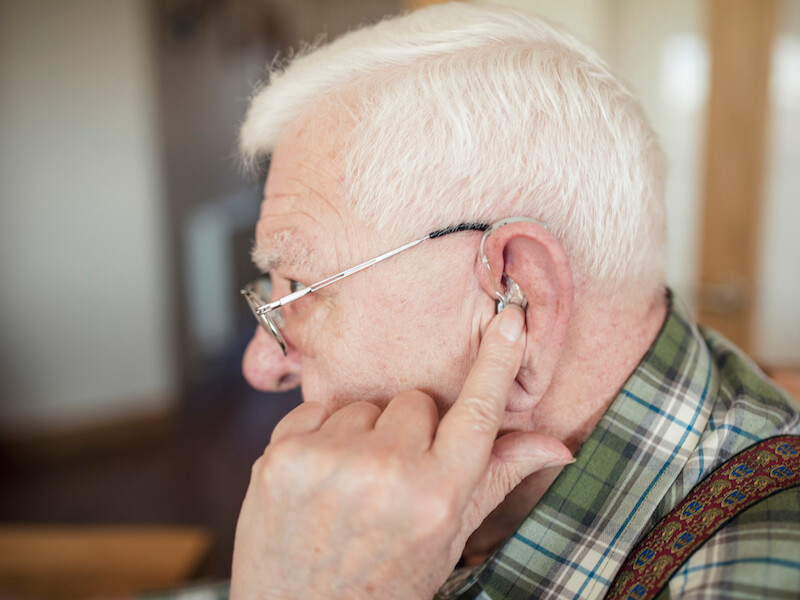
Do you feel like your hearing aid batteries won’t keep a charge as long as they should? The reasons for this can be sometimes unexpected.What is the average period of time that your hearing aid batteries should keep a charge? Anywhere from 3 to 7 days is normal. That’s a very wide range. As a matter of fact, it’s so wide that it probably won’t help you predict what should be going on with your hearing aid. Things could suddenly get quiet when you’re trying to hear the cashier at the grocery store after 4 days of battery power. Or perhaps on day 5, you’re having an enjoyable conversation with friends when you unexpectedly feel very alone because you can’t participate because you can’t hear. Sometimes the batteries don’t even make that 3 day mark. Like when you’re watching TV on day 2 and suddenly you can’t hear the show your watching. It’s more than a little inconvenient. You just can’t tell how much battery power you have left in your hearing aids and it’s causing you to miss out on life. If your hearing aid batteries are dying too quickly, there are several likely causes.
A Battery Can be Drained by Moisture
Did you realize that humans are one of the few species that produce moisture through their skin? We do it to cool down. It’s the body’s way of ridding the blood of sodium and toxins. You may also live in a climate that is humid and moist. The air vent in your hearing aid can become clogged by this added moisture and it will be less reliable. Moisture can also mix with the chemicals of the battery causing it to drain faster. You can prevent moisture-related battery drainage with these steps:
- if your storing them for a number of days or more, remove the batteries
- Obtain a dehumidifier for your hearing aids
- When you store your hearing aids, open the battery door
- Don’t keep your hearing aids in the bathroom, kitchen or other damp environments
Advanced Hearing Aid Features Can Drain Batteries
You get a much better hearing aid nowadays than you did even a decade ago. But these extra features can cause batteries to drain faster if you’re not paying attention. Don’t avoid using your favorite features. But be aware that if you stream music for hours from your smartphone to your hearing aids, you’ll have to replace the battery sooner. Noise-canceling, Bluetooth, multichannel, tinnitus relief — all of these added features can deplete your battery.
Altitude Changes Can Affect Batteries Too
Your batteries can be sapped out if you go from low to high altitudes specifically if they are already low on juice. When skiing, flying or climbing always takes some spare batteries.
Perhaps The Batteries Aren’t Really Low
Some models will give you a warning when the battery starts to get too low. These alerts are, under normal circumstances, a “heads up”. It doesn’t mean you have a dead battery. On top of this, sometimes an environmental change in altitude or humidity temporarily causes the charge to drop and the low battery alert gets triggered. Take the hearing aids out and reset them to end the alarm. You may be able to get a few more hours or even days out of that battery.
Handling Batteries Improperly
You should never take out the little tab from the battery until you’re ready to use it. Avoid getting skin oil and dirt on your hearing aid by washing your hands before handling them. Don’t ever freeze hearing aid batteries. This strategy might extend the life of some types of battery but it doesn’t work with hearing aid batteries. Hearing aid batteries might lose battery power more quickly if you make these basic handling errors.
It isn’t a Good Idea to Buy a Year’s Supply of Batteries
If you can afford to do it, buying in bulk can be a smart idea. But the last few batteries in the pack probably won’t have full power. Unless you’re fine with wasting a few, try to stay with a six month supply.
Shopping For Hearing Aid Batteries on The Internet
This isn’t a broad criticism of buying stuff on the internet. There are some pretty great deals out in cyberspace. But some less honest people sell batteries on the internet that are very close to the expiration date. Or worse, it has already passed. So buyer beware.
There’s an expiration date on both zinc and alkaline batteries. If you were going to buy milk, you would check the expiration date. You should use the same amount of care with batteries. Make sure that the date is not close to the expiration so that you can get the most use out of the pack. It’s probably a good idea to message the vendor if you don’t see an expiration date or even better, come see us for your battery needs. Only purchase batteries from trusted sources.
Now You Can Get Rechargeable Hearing Aids
There are several reasons that hearing batteries might drain quickly. But you can get more power out of your batteries by taking some precautions. If you’re looking to buy a new pair of hearing aids, you might decide on a rechargeable model. You dock them on a charger each night for a full charge the next day. And you only need to change them every few years.